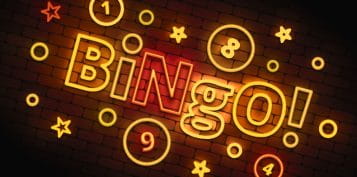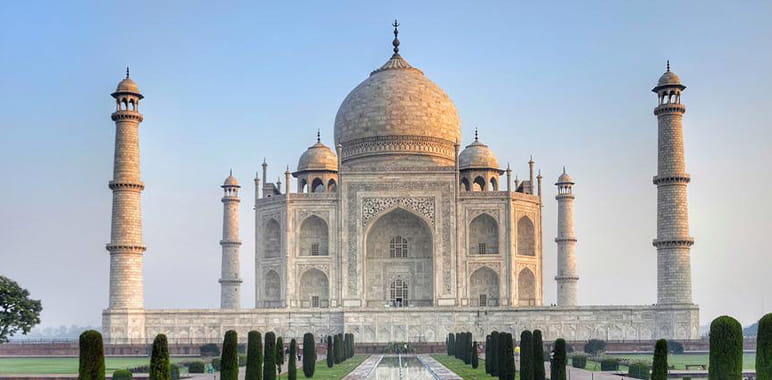Ancient Gambling – Interesting Facts & Popular Games
When we think about ancient gambling, the mind runs to famous games in Ancient Rome or Ancient Greece. In this article, you can find interesting information about various gambling games played in the past. Read on and learn fascinating facts about some of the most ancient civilisations and their gambling habits.
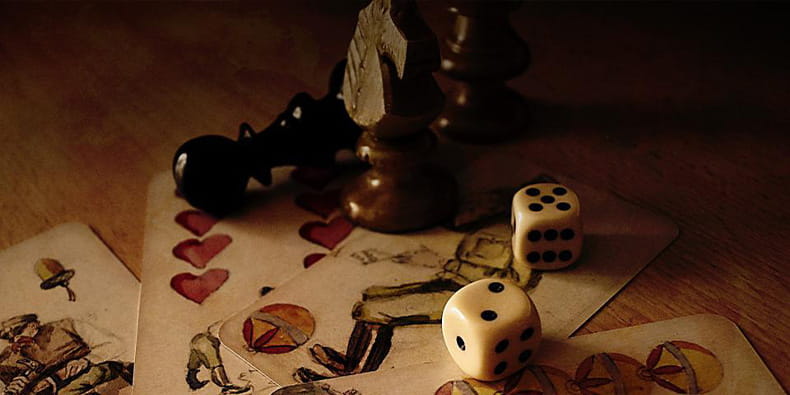
This article is strictly engaging with games and wagering in the past, but we will make a few references to the present day gambling locations and entertainments. In the element below, you can find the titles of the major sections in this article. Use the jumps to go to ancient Chinese gambling games, for example, or read line by line. Either way, it will be great to check the Q&A section at the end for more details.
History of Gambling in Europe
In the first section of this article, we will share a few details about gambling in ancient European countries. Overall, the games people wagered on around the world are similar. The table below has a shortlist of the most common game equipment and games, which we will give more details further down the article:
| ✨ Equipment | 🕹️ Games |
|---|---|
| 🎲 Dice | Barbooth, Loar’s Dice, Craps, Drop Dead, Sic Bo |
| 🃏 Cards | Poker, Blackjack, Baccarat, Fantan, Gin Rummy, Red Dog |
| 🀄 Tiles/Tokens | Mahjong, Puzzle Tiles |
| 🎋 Sticks | Games of Chance & Competitions |
| ♟️ Board | Fun, Race & Strategy Board Games |
| 🐎 Animals | Animal Races & Animal Fights |
| ⚔️ Weapons | Human vs Human Fights and Competitions |
You may wonder why you can’t see the United Kingdom. The history of gambling in the UK is extend, and the Brits used to place stakes on almost everything and every competition. That is why we left the subject for another article. Now, we will tell you about the ancient gambling practices of other countries in Europe.
Gambling in Ancient Rome

For a long time, Rome ruled over a vast portion of Europe and added parts of Africa and the Middle East to its territories. That is why gambling in Ancient Rome was widely spread and had many forms. Undoubtedly, the most popular wagering event was the gladiator fights organised by nobles and emperors. People of all ranks and status wagered on the outcomes of the fights and the other entertainments during the games.
Romans were superstitious, and before placing a wager, some of them prayed to the god of gambling – the mighty goddess Fortuna. The goddess’ was the patron of fate, fortune, chance, and therefore patroness of gamblers and gambling games. Knowing that the god of fortune is a woman, it was strange that for a long time, Roman women were allowed to gamble only during the Bona Dea Festival.
I am skilled enough to win without cheating. – Pompeii graffiti
Some of the preserved Roman gaming pieces and dice were made of stone, marble, ivory, and even glass. They were used in games such as “The Game of Twelve Signs” (earliest variation of backgammon) and “knucklebones”. Emperor August Caesar is known for his celebrations with games where anyone could win a prize in a lucky draw, similar to a lottery. If someone didn’t like the prize, the emperor explained that it was up to Fortuna to grant prizes.
Gambling in Ancient Greece
When we think about Ancient Greece, the first things that come to mind are the Olympic games, the beautiful Helen of Troy, and the Greek gods’ myths. The gambling history of Ancient Hellada is closely intertwined with the history of Ancient Egypt, ancient Rome, and the rest of the countries along the Mediterranean Sea.
It is believed that Palamedes invented the dice and dedicated them to the Temple of Fortune in Corinth. Other sources claim that the dice were first mentioned over 6000 BCE. Either way, Ancient Greeks liked wagering on dice, astragali, or coins. Games like “Heads and Tails” and the guessing game “Par Impar Ludere” were extremely popular. Once the bets were placed, players relied on Hermes (the gods’ messenger, “divine trickster”, and god of games) for good fortune.
Vikings & Gambling Games
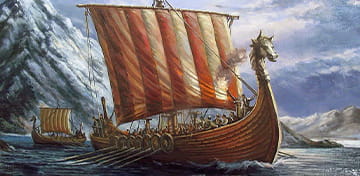 Nordic tribes also enjoyed many ancient games of chance. Sometimes the games were physical in the form of violent competitions of strength and speed. There were one-on-one fights and team games, which are similar to modern sports like rugby, baseball, and martial arts. The indoor games included dice and tactical board games such as Tafl (also called “hnefatafl”). Those games were liked because they were easy to carry during travels.
Nordic tribes also enjoyed many ancient games of chance. Sometimes the games were physical in the form of violent competitions of strength and speed. There were one-on-one fights and team games, which are similar to modern sports like rugby, baseball, and martial arts. The indoor games included dice and tactical board games such as Tafl (also called “hnefatafl”). Those games were liked because they were easy to carry during travels.
The bets in ancient gambling games were small coins, fur, weapons, or other items for daily use. However, the Sagas tell us about the dice roll for Hisingen island. The King of Sweden and the King of Norway played for the island in 1020, and the Norway king got the disputed island. This bet is beaten only by the god Loki, who staked his head on a wager with the dwarves. He lost the bet but kept his head because the dwarves could not touch his neck since it was not part of the deal. Luckily, things have changed over the years. Forget staking your head, nowadays, you can play online roulette in Norway with Norwegian krone instead!
Gambling in Europe After the Dark Ages
The ancient gambling games survived through the Dark Ages and the Inquisition. Tactical board games like chess and backgammon were considered a domain to the scholars and rulers. Dice, however, were in the domains of everyone who could afford the wagers. We read about gambling games in Chaucer’s works, and John of Salisbury (1120-1180) describes 10 dice games.
After their creation in the 9th – 10th century, the cards became extremely popular and spread all over Europe. People were so addicted that in the 14th century, many countries outlawed the cards. This continued until 1638, when Casino di Venezia opened doors by the Grand Canal in Venice. More casinos sprout all around the continent, offering roulette, baccarat, blackjack, dice, Chemin de Fer, Punto Banco, and more.
Ancient Gambling in Asia & Oceania
Those of you who had read our article about the 10 largest casinos in the world know that six of them are in Macau, China. Many of the Ancient Chinese gambling games still exist today and have modern variations. Here are some of the most popular gambling games in Asia in the past:
Today, every citizen of the island nations in the Pacific Ocean is free to visit the top Manila casino resorts, or other modern casinos in the region. However, in the past, the Australian aboriginals played “two-up”, which is a Heads or Tails coin toss game. The “spinner” in this traditional Australian gambling game throws 2 coins into the air. Then players bet on which side both coins will fall on. This game is a tradition for Anzac Day and is played in pubs and clubs to this day.
The Maori tribes in the Pacific have skills-developing active games. The traditional games involved running, jumping, swimming, and even developing the fighting skills like mamau (wrestling) and para whakawai (weapons training). There is no information on wagers, but undoubtedly, the viewers ruled for their favourite. Even today, a large part of the Maori reject gambling and casinos in favour of the family and physical activities.
Gambling in Ancient Egypt & Africa
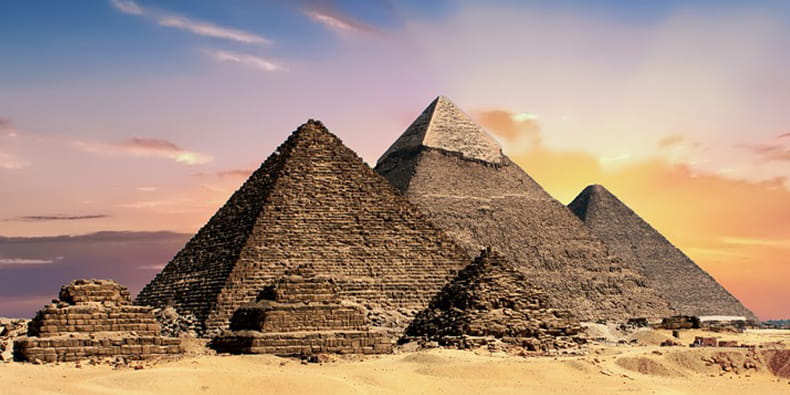
The technology today allows us to access the best casino sites in the UK for 2024 and other online gambling sites from any point worldwide. That was not possible 20 years ago, and what is left for the people who lived hundreds and thousands of years ago. We expect to find the oldest games in Africa because it is believed that this is the cradle of human civilisation. In this section of the article, we will give examples of ancient gambling games played in African countries.
Games from Ancient Egypt
Gambling in ancient Egypt was common and often part of rituals. There was even a time when it went out of hand, as we understand by the appearance of the first anti-gambling laws 3000-4000 years ago. All games and different activities were seen as entertainment with or without wagers. Here are some of the Ancient Egyptian games discovered in temples and tombs:
- 🐶 Dogs and Jackals is played by two players. Each player has five-game tokens placed on the opposite sides of the game board. The players’ goal is to get all pieces to the designated area by using the shortcuts and avoiding the obstacles on the board.
- 🔘 Mancala (Wari in West Africa) was popular in Africa and Asia for over 7000 years. The early game pieces were made of wood or clay, and the game board was made of carved stone. The board has holes for the “seeds”, usually marbles, rocks, beans, seeds, or different small round objects.
- 🐍 Mehen images date back between 3000 BC to 2300 BC. The rules were lost through time, but it is considered a race board game. Players compete to cross the board with a carved snake. However, it is unclear if they have to start from the centre and go to the edges or the other way around.
- ✔️ Senet appeared over 5000 years ago as another popular two-player race game. It is believed that backgammon is a modern version of senet. There are only tomb depictions of the game, and no rules survived.
- 🕸️ Yoté is a traditional West African strategy board game related to the Choko game. It is valued as a gambling game because of the game’s fast pace and surprising turnarounds. The goal is for a player to capture all pieces of the opponent.
Those are some of the games originating in Ancient Egypt, but they are not the only board games in Africa. Many people in West Africa like playing Tab. In Liberia, the Queah Game is extremely popular even today. On the opposite side of Africa, in Sudan, people are still fond of the Hyena Game, also called Hyena (native name “l’ib el merafib”).
Other African Games to Bet On
Other ancient African games and competitions were also object of wagering. Some of the most attractive activities were fighting and wrestling events part of cultural or religious holidays like the Senegalese Wrestling (Senegal and Gambia), Capoeira-Angola, and Stick Fighting (Southern Africa).
The Ta Kurt el Mahag appeared in Libya, and it is believed to be the origins of modern baseball. Animal races like Lamu (donkey races in Kenya), horse races, and camel races provide wild entertainment for the crowd and can bring great prizes to the bettors and contestants.
Ancient Games in North, Central & South America
 The Las Vegas Strip map and gambling centres like Reno and Atlanta are proof of how far we have gone when it comes to legalising and accepting gambling. When it comes to the history of the Americas, a lot is lost on the matter of games and gambling. We scraped through the findings and will tell you what local tribes used to play in the past.
The Las Vegas Strip map and gambling centres like Reno and Atlanta are proof of how far we have gone when it comes to legalising and accepting gambling. When it comes to the history of the Americas, a lot is lost on the matter of games and gambling. We scraped through the findings and will tell you what local tribes used to play in the past.
Gambling Games in America Before Colonisation
Historians discovered ancient gaming pieces with marks on them used as modern dice. This may not seem strange, considering that the entire world played dice games for thousands of years. What made the dice sticks different is that those “dice” are over 5000 years old. The local Mexican tribe Chantuto used them and spread the game to the rest of the tribes.
Before the European colonisation, the native tribes used to play interactive games that built physical abilities and strengthened their relationship within society. One of the popular games was the Laughing Game, where the objective is to make everyone laugh while remaining serious. The hunting and life skills were also represented as games children played from an early age.
The Native American casinos may seem like an innovation, but archaeologists recently found a cave in Utah used as an ancient casino. The historians dated the cave casino back to the 13th century and discovered 10,000 objects, which could be used in gambling and gaming activities.
It is known that women gambled the daily activities by “drawing sticks”. Depending on how the stick lands, the winner got the easiest tasks and the loser the worse chores. In the meantime, the men were often wagering on the outcome of the women’s gamble.
Gambling in America after European Colonisation
We know that some ancient gambling games in North America were brought by Leif Erikson over 10 centuries ago. The Vikings’ dice and board games spread and became part of the culture fast. Since most of the information was destroyed after the deaths of the natives, the archaeologists have a hard time determining which games were local and which were brought.
What is known about the gambling history of the Americas is that the European colonisers brought their games with them. That is how sports like tennis, dice and card games were introduced to the locals. With the development of the societies appeared roulette, poker, blackjack, and other casino games. Some of them became popular because of gunslingers and gamblers like Doc Holliday, Wild Bill Hickok, Poker Alice, and more.
Gambling on Water
 You might be wondering how gambling in Ancient Rome is similar to gambling in Ancient China. The answer is simple – people have always travelled bringing their culture, habits, and games with them. Travelling on land has been extremely dangerous because of the wild animals and the countless robbers and bandits, so many people chose to travel by water.
You might be wondering how gambling in Ancient Rome is similar to gambling in Ancient China. The answer is simple – people have always travelled bringing their culture, habits, and games with them. Travelling on land has been extremely dangerous because of the wild animals and the countless robbers and bandits, so many people chose to travel by water.
Today we have riverboat casinos and ocean cruisers, but in the past every boat, ship, and river barge were gambling locations. Sailors and travellers spent their nights wagering and playing cards or dice. Some were richer by the end of the trip, while many others stepped off the ship with empty pockets.
With the development of technologies, gambling also changed. Now players can access the best online roulette sites with a few clicks of the phone while they wait for the plane, get stuck in traffic, or walk their dog. This freedom might make you think that soon there will be nothing new to wager on. We disagree because after seeing who will get to Mars first, we will have more space discovery betting topics.
Ancient Gambling Interesting Questions
Ancient gambling is a vast subject with many unknowns. Even so, we collected the most important information in our article, and now we will answer some interesting questions about ancient gambling games. If the answers are not enough, follow the links to the relevant sections of our article for more information.
Similar Articles
